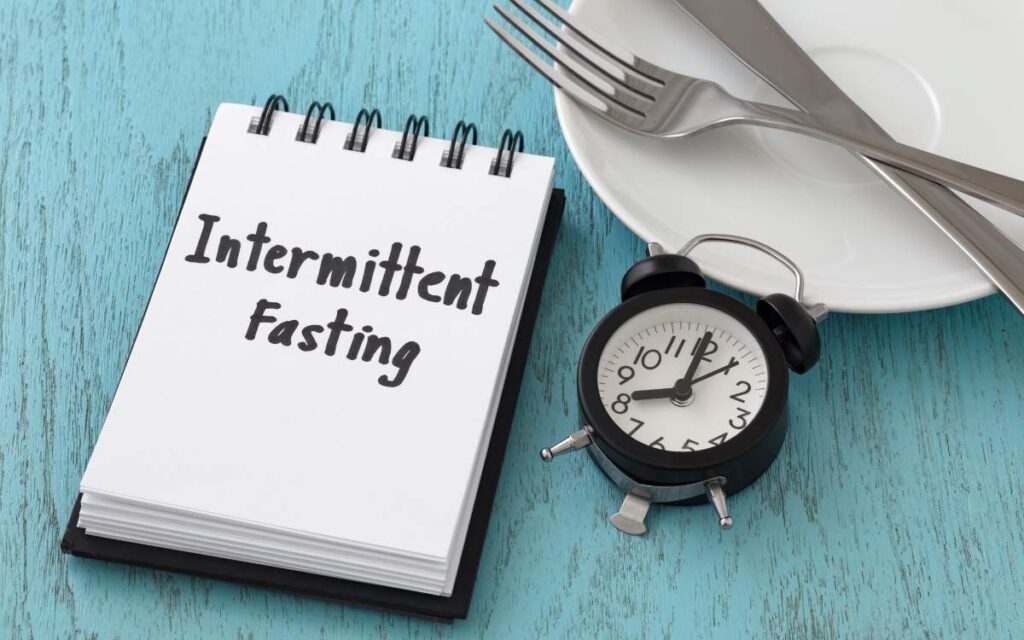Are you looking for an easy way to lose weight quickly?
If so, then you may have come across a wide range of extreme weight loss methods.
From crash diets to detox teas and supplements, there are numerous ways that promise fast results.
While these methods can help you shed some pounds in the short term, they may not be healthy or sustainable in the long run.
In this article, we’ll explore the pros and cons of various extreme weight loss methods so that you can make an informed decision about which one is right for your needs and lifestyle.
Overview Of Extreme Weight Loss Methods
Extreme weight loss methods are those that promise quick and dramatic results, often going against accepted health advice.
There are a wide variety of approaches to extreme weight loss, from liquid-only diets to intense fitness programs.
These diets and workout regimes can be dangerous if not supervised by a qualified healthcare professional; certain plans don’t ensure adequate nutrition for all people or for long-term sustainable health.
However, with the proper guidance, extreme weight loss methods can reduce body fat without losing muscle mass and improve cardiovascular function for a healthier lifestyle.
Pros And Cons Of Crash Diets

Crash diets are extreme diets that involve drastically reducing calorie intake.
The idea is to create a large energy deficit in the body, resulting in rapid weight loss.
This can work well for people looking to lose large amounts of weight or jump-start healthier eating habits. However, crash diets also have drawbacks.
Pros:
• Quick results. People who try crash diets may see rapid weight loss, which can be encouraging and motivating for long-term dieting success.
• Easy meal planning. Crash diets often require few food choices, making it easier to plan meals and snacks.
• Cost-effective. Many crash diets are low-cost and require minimal additional purchases.
Cons:
• Unsustainable weight loss. Crash diets are not designed to be used long-term, as they often involve cutting out certain food groups or severely restricting calories. This can make it difficult to maintain weight loss over time.
• Nutrient deficiencies. Crash diets may not provide all the essential nutrients the body needs, leading to deficiencies and other health problems.
• Unpleasant side effects. Crash dieting can cause fatigue, lightheadedness, headaches, and constipation due to a lack of calories and nutrients.
• Dehydration. When following a crash diet, people are often encouraged to drink large amounts of water. This can lead to dehydration if they don’t get enough electrolytes from their food or other sources.
Overall, crash diets can be effective for short-term weight loss, but the risks associated with them should be considered before starting one.
People who are considering a crash diet should consult with their doctor or a registered dietitian first.
Additionally, they should look for healthier alternatives that involve making gradual changes to their eating habits and lifestyle.
Doing so can help them achieve and sustain healthy weight loss without the risks of crash dieting.
See Apulian Secret To Weight Loss
Advantages And Disadvantages of Detox Teas And Supplements

Detox teas and supplements are becoming increasingly popular as a way to help people improve their health and lose weight. They often contain herbs, vitamins, minerals, and other nutrients that claim to detoxify the body of toxins.
Pros:
• Increased energy levels. Detox supplements can provide the body with essential nutrients that can help boost energy levels.
• Improved digestion. Detox teas and supplements can help improve digestive health by helping to flush out toxins from the gastrointestinal tract.
• Weight loss. Some detox supplements contain ingredients that can help suppress appetite, increase metabolism, and burn fat faster, leading to weight loss.
Cons:
• Interactions with medications. Detox supplements can have interactions with certain medications. It is important to consult a healthcare professional before taking any form of detox supplement, especially if you are currently taking medication.
• Unproven claims. While some detox supplements may contain vitamins and minerals that offer health benefits, there is no scientific evidence to support the claims that they can detoxify the body of toxins.
• Side effects. Detox supplements can have side effects, such as nausea, headaches, and fatigue. It is important to talk to your doctor before taking any form of detox supplement to make sure it is safe for you.
Overall, detox teas and supplements can offer health benefits, but it is important to do your research before taking any form of supplement.
Consult with a healthcare professional to ensure that the product you are considering is safe and appropriate for your needs.
Additionally, be aware of any potential interactions with medications you may be taking.
The bottom line is that detox supplements can provide some potential health benefits, but it is important to do your research and consult a healthcare professional before taking them.
With the right precautions and considerations, detox supplements can be a beneficial addition to your wellness routine
Benefits And Risks of Intermittent Fasting

Benefits:
1. Intermittent fasting can help you lose weight and belly fat, as well as reduce your risk of chronic diseases such as type 2 diabetes, heart disease, cancer, and stroke.
2. Fasting helps regulate hormones such as insulin and ghrelin which control hunger signals to the brain. This helps to control hunger levels and may help prevent overeating.
3. Intermittent fasting can improve mental clarity, focus, concentration, and energy levels as it allows the body to access deeper energy stores without having to digest food.
4. Fasting helps boost metabolism which increases fat burning and improves overall health.
5. Intermittent fasting can help to reduce inflammation and oxidative stress in the body which can lead to a number of health benefits.
Risks:
1. Intermittent fasting may not be suitable for those with diabetes or other medical conditions, as it could cause blood sugar levels to drop too low. Anyone considering intermittent fasting should consult a doctor first.
2. Fasting for too long can lead to dehydration and electrolyte imbalance, which can have serious health consequences.
3. Intermittent fasting could also cause people to overeat during the non-fasting periods as they may be so hungry that they lose control over their eating habits.
4. Fasting can cause fatigue and mood swings, as well as increase the risk of developing an eating disorder such as anorexia nervosa or bulimia.
5. Intermittent fasting could also lead to nutrient deficiencies if it is done for too long or in extreme cases. It is important to ensure that you are eating a balanced diet with enough nutrients during the non-fasting periods.
Overall, intermittent fasting can be beneficial for some people, but it is important to weigh the risks and benefits before starting any dietary regimen.
See the 30-Day Ultra-Fast Keto Challenge
Pros And Cons of Intense Exercise Regimens
Pros:
1. Intense exercise regimens provide an opportunity for individuals to achieve their fitness goals faster. They are tailored to help people reach their desired level of physical fitness in a relatively short amount of time.
2. These exercises can help build muscle, improve cardiovascular health, and increase endurance levels. In addition, these intense workouts can improve overall mental health and reduce stress levels.
3. People who follow an intense exercise regimen often find that they have more energy throughout the day and are better able to stay focused on the tasks at hand. They may also discover improved self-confidence as they become more physically fit.
Cons:
1. Intense exercise regimens can be dangerous if they are not done correctly. People who are new to intense workouts may suffer from injuries, such as strains and sprains if they do not use the proper form or take adequate breaks between sets.
2. These exercises can also be difficult to maintain in the long term because of the high level of physical strain they place on the body. It can be hard to keep up with an intense exercise program and people may find themselves getting bored or feeling unmotivated over time.
3. There is also a risk of overtraining if intense exercises are done too frequently or for too long of a period of time. This can lead to a decrease in performance, as well as an increased risk of injury.
Overall, intense exercise regimens can be beneficial if done correctly and accompanied by proper nutrition and rest.
However, it is important to be aware of the potential risks associated with these types of workouts and to ensure that they are done safely.
Tips for Making Healthy Choices When It Comes to Extreme Weight Loss Methods
1. Consider your overall health: Before you begin any extreme weight loss program, it’s important to consider the potential risks and benefits associated with it. Make sure that the proposed diet or exercise regimen is suitable for your age, gender, medical history, and lifestyle.
2. Set realistic goals: It’s important to set attainable goals when trying to lose weight. Rapid, drastic weight loss is usually not sustainable and can lead to health complications as well as psychologically damaging feelings of failure and guilt.
3. Consult with a doctor: Talk with your doctor before beginning any extreme diet or exercise plan. Your doctor will be able to evaluate your overall health and recommend any necessary lifestyle modifications.
4. Stay hydrated: It’s essential to stay hydrated when engaging in an extreme weight loss plan, especially if the program involves strenuous exercise or a low-calorie diet. Dehydration can be very dangerous and is one of the most common causes of both short-term and long-term health complications.
5. Get enough sleep: Getting adequate rest is essential to successful weight loss. Lack of sleep can disrupt hormonal balance, leading to increased hunger and cravings for unhealthy food. Aim for at least seven hours of uninterrupted sleep per night.
6. Monitor your progress: Keeping track of your progress and success helps keep you motivated. Schedule regular weigh-ins, take photographs, and note both physical and emotional changes on a daily or weekly basis.
7. Don’t be discouraged: Weight loss from extreme methods is not always linear or consistent, so don’t get discouraged if progress slows down or stalls temporarily. The best way to stay motivated is to focus on the successes and accomplishments that you have achieved.
8. Seek professional help: If you are having difficulty following your extreme weight loss program, or if you feel overwhelmed by the process, seek help from a qualified health professional. They can provide advice, guidance, and support to ensure that you reach your weight loss goals in a safe and healthy manner.
9. Balance your diet: While extreme diets can help you to lose weight quickly, it’s important to maintain a balanced diet and ensure that you are getting the nutrients that your body needs. Fad diets or crash diets should be avoided as they can lead to nutritional deficiencies and other health complications.
10. Stay active: Incorporate regular exercise into your routine. This will help to increase lean muscle mass, boost metabolism and burn fat. Exercise can also reduce stress and improve overall mental health.
There is no one-size-fits-all approach to extreme weight loss methods. Before beginning any type of program it’s important to consider your health, set realistic goals, and consult with a doctor. With the right attitude, commitment and discipline, extreme weight loss can be achieved safely and effectively.
Final Thoughts On Extreme Weight Loss Methods
Extreme weight loss methods can be incredibly effective if done correctly and monitored carefully.
But they are also extremely risky and can lead to serious health issues, even death, if not done properly.
Be sure to consult with a qualified healthcare professional before embarking on any extreme weight loss program or method.
Make sure you understand all the risks associated with these methods and that you are in sound physical and mental health before undertaking any extreme weight loss plan.
Also, it is important to remember that sustainable weight loss comes from developing healthy habits and lifestyle changes over time.
Extreme weight loss methods usually result in rapid weight loss, but maintaining the weight loss requires a long-term commitment to healthier eating and regular physical activity.
Finally, keep in mind that weight loss is not an exact science, and everyone’s body will react differently to different methods.
It is important to find what works best for you and your lifestyle.
Be sure to always listen to your body and never push yourself too hard when it comes to extreme weight loss methods.
With careful consideration and proper guidance, extreme weight-loss methods can be a great way to reach your weight-loss goals.
Best of luck on your journey!
See Apulian Secret To Weight Loss

